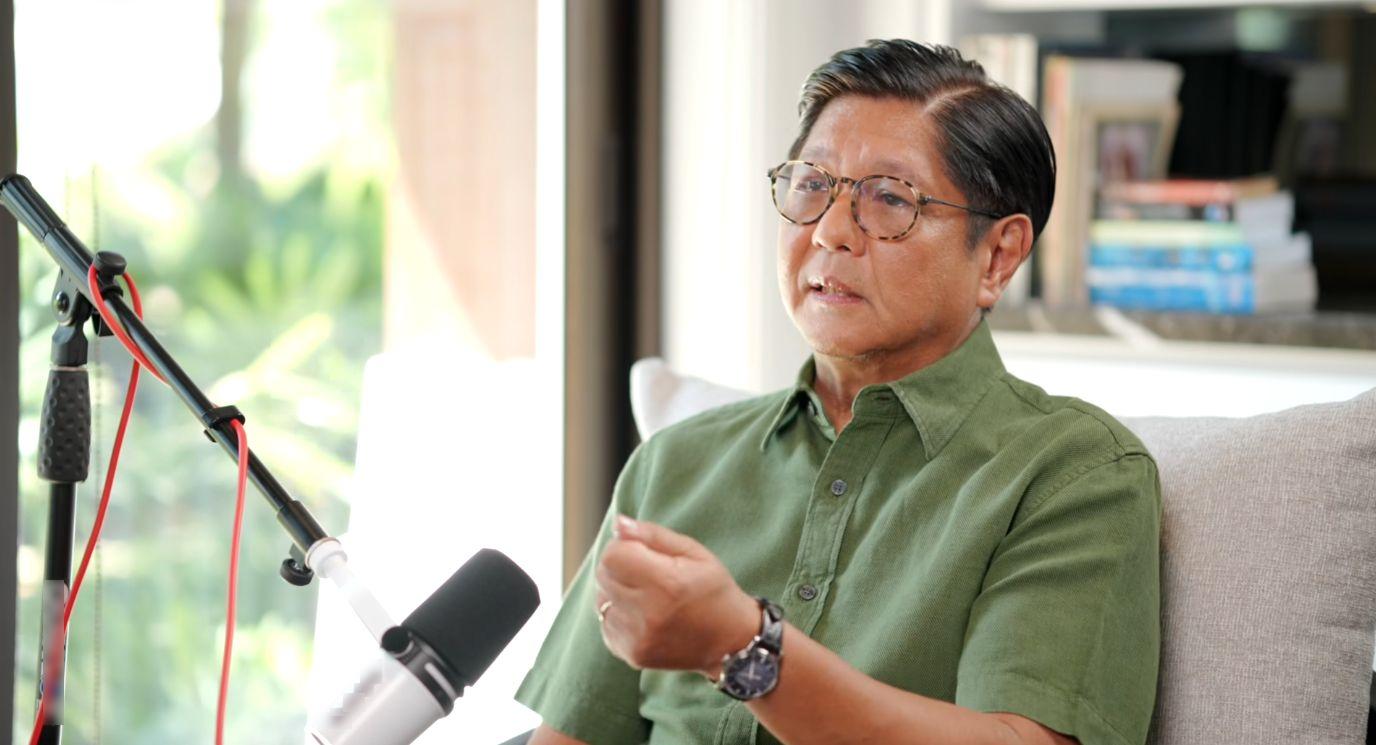
By Brian Campued
President Ferdinand R. Marcos Jr. underscored his administration’s continued push for digital transformation in the government and the importance of transportation that is responsive to commuter needs in the third part of BBM Podcast Episode 3 on Thursday.
To further streamline government transactions, the President touted the benefits of downloading the eGovPH Super App, which integrates processes offered by national government agencies and local government units.
He acknowledged the “bad experiences” of Filipinos who had to endure long queues and go back and forth between government offices just to get documents.
“You cannot operate in 2025 na kinakamay-kamay mo ang forms, pupunta-punta ka sa opisina,” Marcos said. “The whole experience, the whole bad experience. So, that [does not] work anymore.”
He stressed that in order to keep up with evolving times, the country needs to be competitive in terms of its ICT infrastructure and development.
“And if we are to compete as a country, as an economy, kailangan natin makipagsabayan. Look at China, how digitalized China is. We have to be at that level. Look at Singapore, look at Korea,” he said.
“These are the people we do business with. So, to be able to do business with them properly, we need to digitalize.”
Despite the technological divide, the President said he made sure that ordinary Filipinos would not have a hard time accessing and navigating the mobile application, but also assured that the government will reach out and educate the people about the app.
“Noong sinusulat pa ‘yong code diyan, ang test ko lagi, ang sinasabi ko, kailangan isimple ninyo, isimple ninyo. Kailangan napakadali… So, sabi ko dapat ‘yung app natin, ‘yung eGov app natin, kung kaya mo mag-Facebook, kaya mo mag-eGov app,” he added.
From car-centric to commuter-centric
As the administration continues to address the perennial traffic in Metro Manila, Marcos said efforts to improve public transportation are underway.
He cited the overabundance of private cars and the lack of an accessible mass transport system as contributing factors to the worsening traffic situation in the metropolis.
“We [have] seen the examples around the world ‘yong mga lugar na talagang sumobra na ang traffic dahil lahat ng tao walang public transport, walang bus, walang tren, walang subway,” he stressed. “Siyempre lahat kailangan bumili ng sasakyan. Bibili ng motor, bibili ng auto. Kaya nagkaka-traffic nang husto.”
Aside from building new train lines, Marcos mentioned the addition of “Dalian” trains to the Metro Rail Transit Line 3 (MRT-3) in order to boost passenger capacity, as well as the ongoing Metro Manila Subway project are among the transportation infrastructure projects of the administration.
“These are solutions so that life will be a little easier, so that life will be more convenient, you know, going to work,” he said.
Policy on online gambling a must to address social effects
Before concluding the podcast, the President also answered why he did not include the issue of online gambling in his fourth State of the Nation Address (SONA) despite calls from both legislators and the public to ban the said recreational activity due to the addiction among Filipinos.
He explained that the government is still formulating a comprehensive policy with various sectors before acting on the issue.
“We still have to form the policy on what we are going to do about online gambling. And to this end, I have already started to organize, to convene a conference of all the stakeholders,” he said.
According to Marcos, the administration needs to focus on the social problems related to online gambling, such as addiction, especially among the youth, and being deep in debt.
“These are the things that we are going to examine and we will come up with a plan to make sure that we address the problem.”
-jpv
